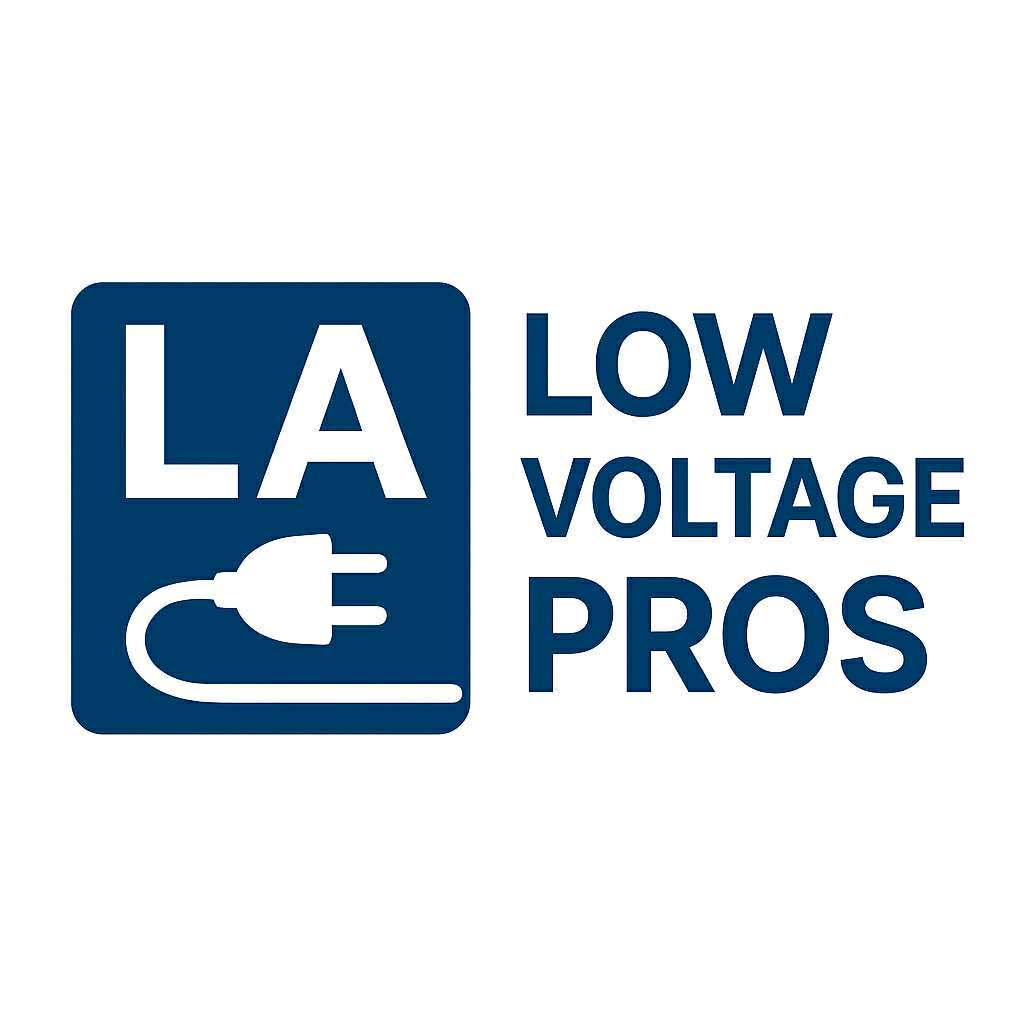What Does a Low Voltage Contractor Do? A Complete Guide for Los Angeles Businesses & Residents
Introduction
In a city like Los Angeles, where technology and modern infrastructure drive both business and lifestyle, low voltage contractors play a crucial role. From data cabling in office buildings to home security systems and smart automation in residences, these professionals ensure that vital systems run safely and efficiently.
This guide explores what low voltage contractors do, the services they offer, why they’re essential in Los Angeles, and how to choose the right one for your project.
Table of Contents
- What Is a Low Voltage Contractor?
- Key Services Offered
- Data & Structured Cabling
- Security & Surveillance
- Audio-Visual & Home Automation
- Environmental Controls & HVAC Integration
- Core Responsibilities & Workflow
- Assessment & Planning
- Installation & Integration
- Testing and Compliance
- Maintenance and Troubleshooting
- Industry Standards & Certifications
- Why You Should Hire One in Los Angeles
- Common Misconceptions
- FAQ
- Conclusion & Key Takeaways
- Author Bio
- References
1. What Is a Low Voltage Contractor?
A low voltage contractor is a licensed professional who specializes in systems that operate below standard electrical power levels, typically under 50 volts. Unlike traditional electricians who focus on high-voltage power distribution, these contractors work on systems such as telecommunications, data cabling, security, and audiovisual installations.
2. Key Services Offered
Data & Structured Cabling
They design and install network infrastructure, including Ethernet (Cat5e/6) and fiber optic cabling. This ensures businesses and homes in Los Angeles have reliable, high-speed connectivity.
Security & Surveillance
Low voltage contractors install and integrate security systems such as CCTV cameras, access control, burglar alarms, and fire detection systems, providing safety and peace of mind.
Audio-Visual & Home Automation
From home theaters to conference room AV setups, these contractors manage everything from wiring speakers to integrating smart lighting, shading, and automation systems.
Environmental Controls & HVAC Integration
They connect and configure systems that manage heating, ventilation, air conditioning, and smart environmental controls like occupancy sensors and thermostats.
3. Core Responsibilities & Workflow
Assessment & Planning
Contractors begin by evaluating site needs, reviewing blueprints, and creating a customized system design.
Installation & Integration
They pull cables, mount devices, terminate connections, and integrate equipment into broader systems such as building management platforms.
Testing and Compliance
Once installed, systems are tested for performance, safety, and code compliance with both local Los Angeles building standards and national regulations.
Maintenance and Troubleshooting
Low voltage contractors also provide ongoing support, including diagnosing issues, repairing faults, and upgrading systems as technology evolves.
4. Industry Standards & Certifications
- National Electrical Code (NEC): Defines installation requirements for safety and compliance.
- BICSI Certification: Internationally recognized credential for structured cabling and telecom professionals.
- Security and Fire Certifications: Additional licensing may be required for alarm and life-safety systems.
5. Why You Should Hire One in Los Angeles
- Specialized Expertise: They bring training and knowledge that general electricians may not have.
- Efficiency & Cost Savings: Low voltage systems are typically faster to install and more flexible than high-voltage alternatives.
- Compliance with LA Regulations: Contractors understand local building codes and permit requirements.
- Future-Proofing: With Los Angeles moving toward smarter, greener buildings, low voltage systems are essential for long-term infrastructure.
6. Common Misconceptions
- “Any electrician can do it.” Not true—low voltage work requires specialized training.
- “Low voltage means no risk.” While safer than high voltage, improper installation can still cause failures, data loss, or system downtime.
- “It’s just wiring.” These systems often involve complex integration of networking, automation, and digital technology.
7. FAQ
Q: What qualifies as low voltage?
Anything under about 50 volts AC, though definitions can vary depending on application.
Q: Are low voltage systems safer?
Yes. Lower voltage reduces shock risks, but correct installation is still critical.
Q: Can a general electrician handle this work?
Not always. Low voltage contractors have specialized skills for communication and automation systems.
Q: What types of projects in Los Angeles need them?
Smart homes, offices, retail stores, hotels, and any building that uses structured cabling, AV, or security systems.
Q: How do I choose a qualified contractor?
Look for licensing, certifications, experience in Los Angeles, and positive client references.
8. Conclusion & Key Takeaways
Low voltage contractors are essential in shaping the way Los Angeles businesses and homes function in today’s connected world. By providing expert low voltage services such as structured cabling, security systems, and smart automation, they combine technical knowledge with compliance expertise to deliver reliable, future-ready solutions.
Hiring a qualified low voltage contractor ensures that your systems are safe, efficient, and aligned with local regulations—whether you’re upgrading a home or managing a large commercial project.
